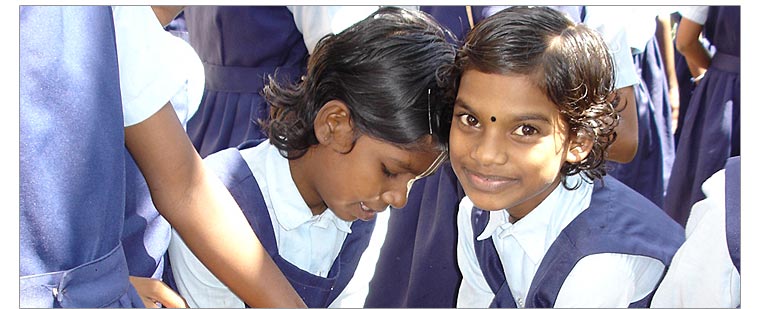| |
Writing
to Your Child
Many
sponsors choose to write to their child. Through an exchange of
thoughts and ideas, you can stimulate a child’s self-esteem,
nurture achievement and foster a desire for learning. If you decide
you want to write to your child, here are a few guidelines and ideas
to help make correspondence easier, more effective, and more rewarding
for you and your sponsored child.
Good
Letter Writing Basics
Do's and Don'ts
Do’s:
- Do
keep sentences short and the language simple.
-
Do include a variety of subjects that may interest your child.
-
Do try and maintain a balance between your news and questions
for your child.
-
Do keep the tone of your letters friendly and warm.
-
Do keep in mind that each letter is an educational experience
for the child. When you ask questions, try and phrase them so
that they require an answer of more then one word. You can ask
for descriptions, thoughts and ideas.
-
Do ask age appropriate questions.
-
Do feel free to send postcards or birthday cards, they will become
prize possessions.
-
Do send photographs of you and your family keeping in mind that
photos of individuals in revealing clothing may be offensive.
-
Do send flat envelops.
-
Do comment on and give praise for any progress in letter writing,
a general trait or interest you have learned about them, or on
something they have accomplished (i.e. You’re drawing is
very colorful. You’re a good helper. You must be a very
good cricket player. Your grades are very good.)
Don’ts:
-
Don’t use slang expressions; they can be difficult to translate
correctly. Please write carefully to avoid confusion in interpretation.
-
Don’t send packages; large gifts may create animosity between
your sponsored child and their peers who may have not received
gifts.
-
Don’t discuss materialistic issues. For a child that has
come from of life of poverty and abandonment, these types of images
may be difficult to understand. Please also consider this when
you send photos or describe your personal surroundings.
-
Don’t send money or checks directly to your children.
- Don’t
talk about death or sickness, or ask your child questions that
may be very sensitive.
Examples
of Topics to Discuss With Your Child:
- Describe
your city, country, or town where you live, the climate in your
country and what the surrounding look like in different seasons.
-
You can tell about your interests and hobbies and ask about theirs.
-
Ask your child to describe what he/she does on an average day.
-
Ask for a written description or drawing of the orphanage.
-
Describe the customs and traditions or your country, the holidays
you celebrate, the types of food you enjoy, the ceremonies you
perform.
-
You can ask your children to write your sponsored child. It may
be interesting for them to discuss the school they attend and
in what ways their school days are similar and different.
-
Ask your sponsored child’s favorite game, sport, or activity.
-
Ask your sponsored child about their hopes and dreams.
-
Tell your child what qualities you like about yourself and ask
what they like about themselves.
-
Ask about school, and your child’s favorite and least favorite
subject. Ask why. Take every opportunity to encourage your child
to work hard and do well in school.
-
You can ask your child to teach you how to do something, maybe
one of the chores your child is responsible for. You can do the
same.
-
Start up a game by mail.
-
Share a funny story with your child.
-
You can send your child a story and challenge them to read it
and then it discuss with you.
|
|
|
|
![]()





